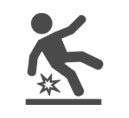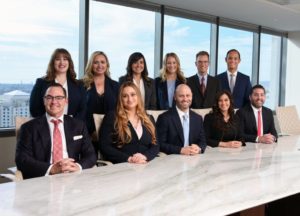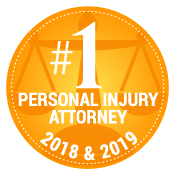Bakersfield Boating Accident Attorneys
- 550+ Google 5-Star Reviews
- $1 Billion won over 15 years
- Won’t settle for low offers, not afraid to fight for max value
Get a Free Case Evaluation
No fees until we win!
All San Diego Case Types

Personal Injury

Brain Injury

Car Accident

Slip & Fall

Truck Accident

Wrongful Death
Bakersfield Boating Accident Attorneys
With plenty of fishing and boating opportunities at nearby lakes—including the Buena Vista Aquatic Recreational Area, Lake Isabella, Lake Ming, and more—no shortage of fun can be had in the water in Bakersfield. However, boats and boating activities carry a risk of injury or even death for passengers, swimmers, and those on the marina.
If you were injured in a boating accident, contact our Bakersfield boating accident lawyer for answers to your legal questions through a free case evaluation and to learn more about the process of obtaining compensation for your injuries. Gomez Trial Attorneys is a firm of dedicated trial attorneys who know what it takes to obtain the compensation our clients need to deal with the profound financial and emotional impacts of a serious injury.
WHAT CAUSES BOATING ACCIDENTS?

Other common causes of Bakersfield boating accidents include:
- Fire: Summer fun turned to chaos when eight individuals from two families were injured in a boat fire at Buena Vista Aquatic Recreational Area after the boat they were in caught fire in the summer of 2019. Seven of the wounded boaters suffered severe burns after the fire quickly spread from the engine, where it originated. The U.S. Fire Administration—a division of the Federal Emergency Management Administration (FEMA)—reports that boat fires are a major hazard, as the unique conditions of this type of injury make it difficult for emergency responders to reach the victims. Further, these fires often spread quickly or occur at night, when passengers of the boat are sleeping. Boat owners commonly fail to provide smoke detectors, fire extinguishers, and can have damaged electrical systems or improper installations that also increase the risk of fire.
- Operator inexperience: Boating is a fun activity, but also one that requires skills and knowledge to prevent injury. Seventy percent of accidents in which investigators discerned the experience of the operator revealed that the operator did not possess a nationally-approved boating safety education certificate.
- Propeller accidents: More than 170 injuries are the result of a swimmer being struck by a boat propeller. This type of accident results in around 150 injuries and 35 deaths each year.
- Operator inattention and improper lookout: Driving distractions are common among the drivers of motor vehicles on the roadway. They are also a common cause of boating accidents on the water. Failing to pay attention to what is going on around the boat can result in the operator having a collision with another boat, person, or even a rock or other obstacle.
- Excessive speed: Speeding in a boat is another major cause of boating accidents. Excessive speed reduces the amount of time a boat operator has to react to the presence of a swimmer or another obstacle in its path. It also creates unexpected waves that can cause other boats to overturn, increases the amount of distance that the boat needs to safely stop, and increases the risk of passengers becoming severely injured or being tossed overboard during a collision.
- Machinery failure: Boats require proper maintenance, and boat operators rely on the manufacturer and distributor of the parts that are used on the boat to work effectively when used according to labeled instructions. Machinery failure resulting from either improper maintenance or defective parts is a major cause of boating accidents in California.
- Overloaded or improperly loaded vessels: If a boat is improperly loaded, its cargo can cause an imbalance that can make the boat prone to tipping over or responding to the operator’s actions in an unexpected way.
In California, the most common type of accident involving boats is a collision with another vessel, which accounts for around 200 boating accidents in the state each year.
Other common boating accidents that take place in California include:
- Flooding/swamping
- Grounding
- Sinking
- Collision with a fixed object
- Falls overboard
- Water skiing mishaps
- An individual falls overboard or is ejected from the vessel
- Fire or explosion that is caused by a source other than fuel One common cause of boat fires is damaged or improperly installed electrical wiring
- A slip and fall accident inside the boat
- A fire or explosion that is caused by fuel
- An individual who is struck by a propeller or by a boat
- The boat is struck by a submerged object
- The boat collides with a floating object
WHEN BOATING ACCIDENTS ARE MOST LIKELY TO OCCUR
Most boating accidents in California occur when the boat is cruising, followed by accidents occurring when the boat is tied to the dock. Other times an accident is likely to occur include when the boat is drifting and when it is changing direction.
California sees the most boating accidents during the summer months, and accidents are most likely to occur on weekends and between noon and 8 p.m., with the plurality between 4 p.m. and 6 p.m. Most fatal boating accidents occur when the waters are hazardous and the boat has capsized. The most likely cause of death after a boating accident is drowning, and the vast majority of boating accidents involve male operators between the ages of 21 and 40.
THE TYPES OF INJURIES ASSOCIATED WITH BOATING ACCIDENTS
Individuals can become injured on a boat in the following scenarios:
- From falling overboard
- When the boat collides with another vessel or object
- When the boat capsizes
- When the boat catches fire
Each of these mishaps is capable of producing some of the most serious injuries a person can experience. Injuries associated with boating accidents include:
- Traumatic brain injuries: Traumatic brain injuries involve damage to the brain because of a violent blow or jolt to the head or body such as that which can be experienced in a boat accident involving a collision or being tossed overboard. The brain, despite being responsible for controlling all voluntary and involuntary responses of the body, only has a limited ability to heal itself after injury. This often results in permanent deficits that can impact the individual’s quality of life and ability to live independently after the injury. The deficits associated with a brain injury include loss of memory, difficulty with speaking or understanding spoken language, difficulty organizing or initiating tasks, problems with controlling one’s behavior, impulses or emotions, difficulty moving in a balanced and coordinated manner, and the inability to wake up or to remain completely alert and awake. Brain injuries are extraordinarily expensive injuries to treat, with the cost of medical treatment alone ranging from $85,000 to $3 million through the course of one’s life.
- Spinal cord injuries: Like the brain, the spinal cord cannot recover from much of the damage it sustained. The spinal cord is a bundle of nerves that extends from the base of the skull to the waist and is protected by the bony covering of the spine. Contrary to popular belief, this type of injury rarely features a severed cord, but rather one that is intact and bruised. Spinal cord injuries are defined by the loss of sensation and function beneath the site of the injury, a condition known as paralysis. If the injury occurs high up on the cord, in the cervical (neck) area, the individual will usually suffer paralysis over much of the body, including the arms and legs, torso, hips and pelvis, shoulders, and diaphragm. This condition is known as quadriplegia or tetraplegia. Injuries occurring lower on the spinal cord can result in paralysis in the lower extremities only, which is known as paraplegia. Besides the loss of mobility and independence, one of the most difficult situations that sufferers of spinal cord injuries endure is the complications of the injury. Common complications of spinal cord injuries include a loss of bowel and bladder control; an increased risk for bed sores and other skin conditions; problems with respiration because of paralysis preventing the individual from coughing productively; and muscle tone issues, including rigid muscles (known as spasticity) as well as soft, limp muscle tone (known as flaccidity). The most common cause of premature death in individuals who have experienced a spinal cord injury is pneumonia.
- Burns: The treatment for burn patients can be nearly as excruciating as the burn injury itself. A burn injury is damage to the skin that is caused by sources of heat or a response to contact with a caustic chemical. Heat sources known to cause burn injuries include fire or flames, hot liquids or steam, hot surfaces, or electricity. Burns are categorized in levels of severity known as degrees, with first degree burns being the mildest—resulting in redness that heals within days—and fourth-degree burns being the most severe, as they involve damage to all layers of skin, the fatty layer beneath the skin, and the support structures such as muscles and bones.
- Near drowning: If an individual is tossed overboard during a boating accident, he or she is at a major risk of drowning. Sometimes, an individual who has drowned can be revived, with the incident then becoming a “near drowning” situation. Near drowning can result in a serious brain injury from a lack of oxygen. Symptoms of near-drowning include a distended (swollen) abdomen; bluish skin on the face, particularly around the lips; chest pain; skin that is cold and pale; confusion; cough with pink, frothy sputum; lethargy; absence of breathing; shallow or gasping respiration; and unconsciousness. California law requires all children under the age of 13 to wear a properly fitted life jacket when they are aboard a moving recreational vessel. However, the law does not require children to use a life jacket on a sailboat if they are constrained by a harness, or in the cabin of any other type of vessel. The law also does not require life jackets to be worn by adults and children over the age of 13.
- Limb amputations: The propellers of the boat place individuals in the water at severe risk of accidental limb amputation. Amputations can also occur because of crush injuries or shearing from a sharp object during a collision. There are also circumstances where an individual will incur a serious limb injury that results in a surgical amputation due to damage that is too extensive to allow the limb to function properly.
- Serious soft tissue injuries: Soft tissue injuries involve damage to the muscles, ligaments, tendons, or skin. This type of injury includes whiplash, which is damage to the soft tissues of the neck caused by a collision that results in the neck snapping back and forth in a motion similar to the cracking of a whip. The rupturing of spinal discs is also a form of serious soft tissue injury, as are torn muscles, ligaments, and tendons.
- Psychological injuries: The injuries caused by boating accidents are not all physical. This type of accident is a traumatic experience, which can involve witnessing other people also become injured or even die, as well as the fear of being left injured in the water and other terrifying experiences. Traumatic experiences carry a risk of causing mental health conditions, including acute stress disorder, post-traumatic stress disorder, depression, anxiety, and more. These conditions, like physical injuries, require treatment from a professional so the injured individual can process the emotions associated with the accident.
Read on for more information about the process of filing a Bakersfield boating accident lawsuit, including the time you have to file and the process for obtaining compensation if your loved one died from a boating accident caused by someone else’s careless or reckless behavior.
FREQUENTLY ASKED QUESTIONS ABOUT COMPENSATION AFTER A BAKERSFIELD BOATING ACCIDENT
Here are the answers to some of the general questions about the process of pursuing compensation for the expenses and impacts incurred because of a boating accident. For answers to questions about your specific case, a Bakersfield boating accident lawyer from Gomez Trial Attorneys is happy to provide information during your free case evaluation.
WHO IS ELIGIBLE TO PURSUE COMPENSATION AFTER A BAKERSFIELD BOATING ACCIDENT AND WHAT IS THE PROCESS?
If you were injured in a boating accident that was caused by someone else’s reckless, careless, or even intentional act, and the injury occurred within the past two years, you are eligible in most cases to pursue compensation. The process for doing so involves filing a Bakersfield boating accident lawsuit in civil court to prove who was liable (legally responsible) for the accident and show the expenses and impacts you have incurred.
HOW LONG AFTER MY BOATING ACCIDENT DO I HAVE TO FILE A BAKERSFIELD BOATING ACCIDENT CLAIM?
You generally must file your Bakersfield boating accident claim in court within two years of the date of your injury due to the statute of limitations in California. Some limited exceptions can result in a shorter or longer timeframe. Your Bakersfield boating accident lawyer can advise you if there is an exception in your case.
WHAT ARE THE DAMAGES I CAN RECOVER FOR MY BAKERSFIELD BOATING ACCIDENT INJURIES?
Damages refers to a payment that is made in compensation for harm. California provides injury victims with the opportunity to recover both economic damages (expenses) as well as non-economic damages (quality-of-life impacts).
Some of the items commonly included on damage claims are:
- Medical expenses such as emergency treatment, hospitalization, diagnostic and laboratory testing, physician and surgical services, physical therapy and rehabilitation, prescription medication, and the provision of an assistive device such as crutches or a wheelchair.
- Wage loss resulting from being too injured to work or missing work due to an injury-related medical appointment.
- Loss of future earning capacity if your injury causes permanent deficits that prevent you from earning the same income as before the accident.
- Property damage you sustained in the accident, such as the repair or replacement of your vessel that was damaged in an accident caused by another boat operator.
- Physical and emotional pain and suffering.
- Loss of the enjoyment of life, if your injury prevents you from participating in activities you previously enjoyed.
- Loss of consortium, which is a damage collected on behalf of the injured person’s spouse for the loss of physical intimacy and companionship that often accompanies serious injuries.
HOW DO I PROVE WHO IS LIABLE FOR MY BAKERSFIELD BOATING ACCIDENT?
You can hold several individuals or entities liable in a boating accident, depending on the circumstances:
- The boat owner
- The boat operator
- The owner or operator of another boat that caused the collision
- The individual or company tasked with maintaining and repairing the boat
- The manufacturer or distributor of defective boat parts
To prove liability in a boating accident, you must establish:
- The at-fault party owed you a duty of care. The duty of care refers to the way a reasonable person would react in similar circumstances. For example, the operator of a boat would be expected to follow local, state, and federal laws and to operate the boat safely.
- There was a breach in the duty of care. The breach refers to the actions that the at-fault party took that were contrary to the duty of care that was owed. Using the boat operator as an example again, if the boat operator chose to operate the vehicle at an excessively high speed while intoxicated by alcohol, the speeding and alcohol impairment would constitute breaches in the duty of care because neither behavior is safe or legal.
- The breach resulted in the accident, which caused you to sustain injuries and incur subsequent expenses and impacts on your quality of life.
You will need a lawyer to establish those elements of negligence.
I WAS NOT WEARING A LIFE JACKET AT THE TIME OF MY BAKERSFIELD BOATING ACCIDENT. CAN I STILL PURSUE COMPENSATION?
Yes. Unless you are under the age of 13 or in a vessel less than 16 feet long, you are not required to wear a life jacket when boating. However, the boat operator is required to provide a life jacket within reach for everyone on board and can face liability if someone drowned because of a failure to provide this personal protection equipment. Even in cases where you were supposed to wear a life jacket and were not, you could still pursue compensation from other at-fault parties.
MY SPOUSE DIED IN A BAKERSFIELD BOATING ACCIDENT. CAN I SEEK COMPENSATION FOR MY LOSSES?
California allows certain family members of a deceased person—including the deceased’s spouse or domestic partner, children, or grandchildren or parents in some cases—to seek compensation from the individual or entity who was liable for the accident.
You could seek damages such as:
- Loss of services and support provided by the deceased.
- Loss of income and benefits that the deceased would have likely earned had he or she survived the accident.
- Loss of companionship, guidance, and moral support provided by the deceased.
Generally, wrongful death claims are accompanied by a survival claim which can provide additional damages on behalf of the deceased, such as:
- Conscious pain and suffering experienced by the deceased between the accident and the time of death.
- Medical expenses for the treatment of the deceased’s final injuries.
- Punitive damages, in some cases. These damages are not available in wrongful death cases and can only be recovered in cases involving wrongful death through a survival claim. Remember, punitive damages are awarded not based on the expenses and impacts of injury, but to punish a defendant for particularly reckless behavior.
WHAT IS THE AVERAGE SETTLEMENT IN A BAKERSFIELD BOATING ACCIDENT CASE?

Boating accidents each feature their own set of circumstances and unique factors, including the severity of the injuries that were caused and the impacts those injuries had on the victim’s life. Because of this, there is no “average” settlement.
However, some factors can affect the value of your case, such as:
- How much insurance the at-fault party has. Insurance pays most Bakersfield boating accident settlements and awards, as individuals usually cannot afford to pay for injury expenses out-of-pocket. This is why, while it is possible to file a lawsuit directly against an uninsured person and even to obtain a judgment, collecting your award would be difficult to impossible. Therefore, the insurance policy limits of the at-fault party can make a difference in what amount you are able to recover.
- Whether you had any responsibility for the accident. In California, you can file a lawsuit against other at-fault parties even if you share the blame for the accident. However, the amount of your award would be reduced in proportion to the amount of responsibility you bear.
- Where you are in life when the accident occurred. Many of the recoverable damage categories involve wage loss and loss of future earning capacity. These amounts will often be greater in cases involving an individual who is in the middle of a successful career than they would be for a young person with little work experience or an older person who has retired and no longer has an earning capacity.
- Your patience. Settlement negotiations take time. The at-fault party’s insurance provider might make as low of an offer as possible to avoid a big payout for injuries caused by their insured. However, litigation is time-consuming and expensive, so there is motivation many times to continue negotiating and working on a resolution that can help avoid the additional cost. Often, the fairest settlement offer comes just before the trial begins.
WHAT IS THE JONES ACT AND DOES IT AFFECT MY CASE?
The Jones Act is a federal law that regulates maritime commerce in the U.S. Among its many provisions is the expansion of rights for sailors to seek damages for injury expenses and impacts from the crew, captain, or owner of the boat. Because the Act applies to ports—not recreational lakes—and requires the claimant to be a sailor, the Jones Act likely does not impact your case. If, however, your injuries occurred in an accident on the port while you were working as a sailor, contact us to learn more about your options under the Jones Act. To learn more about which laws may apply to your matter, contact Gomez Trial Attorneys.
I CANNOT AFFORD AN ATTORNEY. CAN I SEEK COMPENSATION FOR MY BAKERSFIELD BOATING ACCIDENT ON MY OWN? WHAT CAN YOU DO FOR ME THAT I CAN’T DO?
You should strongly consider retaining an attorney to handle your matter. A Bakersfield boating accident attorney can arm you with a wealth of experience about the process of obtaining compensation for the expenses and impacts of your injury as well as a deep understanding of the type of compensation that is needed in cases like these.
At Gomez Trial Attorneys, some of the services we provide will be very difficult for a person without legal training and the resources we have to handle on their own. Because legal guidance is so necessary in this type of case, we are pleased to provide two special services aimed at providing our assistance to anyone who needs it, regardless of their financial status.
These services include:
- A free case evaluation in which you can meet our Bakersfield boating accident lawyers, obtain answers to your legal questions, and explore the options that are available for you.
- A client-friendly contingency fee payment plan. What this means is that you owe nothing for your attorney’s legal fees until there is a successful outcome in your case. This allows us to work on your case without an upfront investment from you.
Other services we happily provide for our clients include:
- A case evaluation that is based on the full-picture of the expenses and impacts you have incurred because of your boating accident injury as well as those you will likely incur in the future.
- A determination of all sources of liability and all insurance resources that can be accessed to compensate you.
- Timely filing of the paperwork required for your lawsuit.
- Attendance and representation of your case at all court-ordered pretrial hearings and conferences.
- The collection and organization of evidence and witness testimony to prove your case.
Negotiation with the at-fault party’s insurance provider to negotiate a settlement that provides you with fair compensation for the impacts and expenses of your injuries.
- Litigation, including the delivery of opening and closing arguments as well as the presentation of evidence and the examination of witnesses at trial.
- Assistance collecting your settlement or award.

Let our Bakersfield boating accident attorney at Gomez Trial Attorneys give you the answers you need to move forward with your claim. For your case evaluation, contact us online or by calling 866-TRIAL LAW (866-874-2552).
INJURED IN AN ACCIDENT? GET A REAL TRIAL LAWYER. GET GOMEZ
Gomez Trial Attorneys
1825, 18th Street
Bakersfield, CA 93301
(619) 237-3490
Our Process... Easy as 1. 2. 3!
Call Us
We will determine your case and submit
We get to work
You will get regular update from us
Win
Collect your compensation

550+ 5 Star Reviews
-
“John helped me find doctors, he referred me to his neurologist, his physical therapist, I mean, anything I needed he was right there, every step of the way. I couldn’t have asked for a better result from all of this, I would absolutely recommend Gomez Trial Attorneys.”
-
“During the time I was working with Gomez Trial Attorneys, they treated me very, very well. 100% of the time, they believed me, and they were very compassionate. They felt sorry for what happened and they understood the therapy process.”
-
“They held my hand the whole time and kept me in the loop every aspect of my case which was very refreshing to me. They helped me get my settlement offer as fast as possible and I was able to keep my farm”
-
“The Gomez experience was the best experience it could be for me really, only positive things to say. They really were there every step if the way. Thanks to Gomez Trial Attorneys my dad is able to support my family as a single father”
-
“He opened the door for me to join his firm to help other brain Injury survivors and I never met another firm who is like this who was so understanding and caring who took the extra step and walked the extra mile with their clients and this is the best”
-
“I am very satisfied with the outcome with Gomez and I would definitely recommend Gomez to anybody, we tell people all the time, Get Gomez! They are really thorough with everything and they make you feel real comfortable.”
-
“Just helped us through, guided us through, I kept notes all those years, we had questions all the time and they would always keep us informed of what was going on. They just unlayered it, layer by layer, I’ve never seen anything like them. Thank God for them.”

